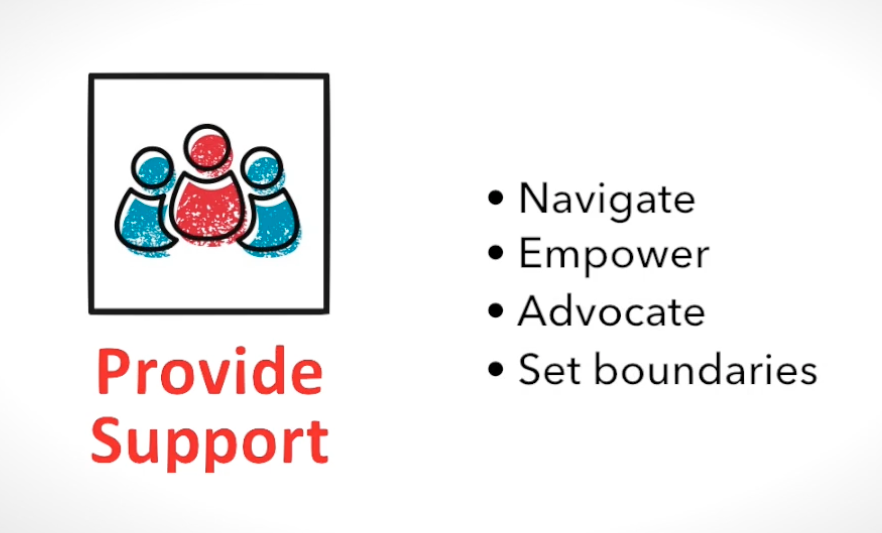We all need support in life. And supporting youth is especially important as they go through the ups and downs of growing up.
Often young people turn to their parents and peers for support, but at other times they seek help from other adults in their life. So what’s the best way to support young people?
What Do We Mean by “Providing Support”?
Let’s start off with a definition: “providing support” can mean different things, and sometimes it can look like expressing care.
For us, providing support focuses on the practical or noticeable things we do for young people: taking action and giving them helpful information and feedback.
Supporting youth helps them stay on track to learn, grow, complete tasks, and achieve goals. It involves four actions:
- Navigate……………………Guide me through hard situations and systems.
- Empower…………………..Build my confidence to take charge of my life.
- Advocate…………………..Stand up for me when I need it.
- Set boundaries………….Put limits in place that keep me on track.
What’s the Right Amount of Support?
As young people grow up, their need for support doesn’t go away, but it does change. It’s sometimes tricky for them to find the right balance of getting support from others and being responsible on their own.
As important as support is, you can also overdo it. If adults do things for young people that take away their growth, autonomy, and learning (or don’t do enough to challenge growth), it hurts their development.
To learn what support is the right amount, ask young people these questions:
- Think about a recent time you were struggling with a challenge. What are some ways adults did (or didn’t) encourage you or advocate for you? How did their response affect you?
- How do you give feedback—either positive or negative—to each other in your family? Do you think that feedback helps family members learn or grow, or does it make them feel defeated?
- Who is someone you admire who encourages you to pursue your goals? What do they do that really matters for you?
- When has someone stood up for you and helped you get what you needed? How did you feel after they helped you with that?
- When have people tried to help you or support you when you didn’t really want it? How did you deal with that? What might you do next time?
9 Tips for Providing Support
Here are some tips that will help you provide support to the young people in your life:
- Help young people solve problems when they encounter barriers to their goals.
- Offer information and practical help to solve a practical problem, or loan them something they may need.
- Show young people how to ask for help when they need it.
- Shift levels of support. Give more support when young people are struggling, and less when they are making progress. Step back as their skills and confidence build.
- Help young people find their own solutions, rather than just telling them what to do.
- When a young person needs help that you cannot provide, help her or him find a person or an organization that can help address the issue.
- Teach strategies for performing and learning under pressure.
- When young people get upset about something or when they have done something wrong, listen carefully and let them know that you understand their feelings before providing direction or discipline.


